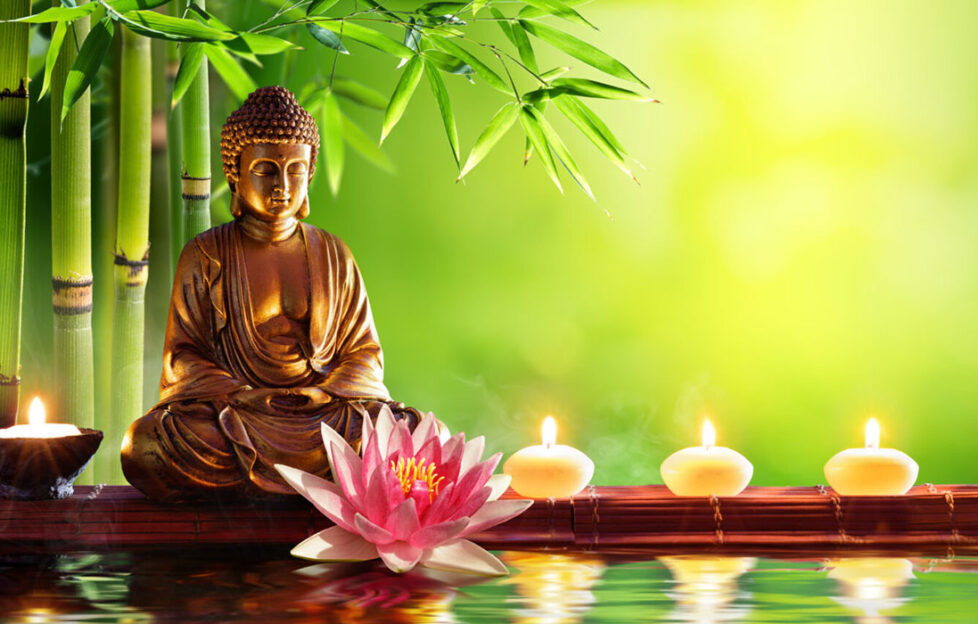Have you found your Ikigai? The secret to a happy life

A career that brings personal fulfilment and satisfaction, as well as “success”, seems like an goal worth striving for, but why does it feel unattainable for so many?
The Japanese believe everyone has an Ikigai: a reason for being, and the reason that gets you out of bed in the morning. By tuning into our Ikigai, we can change how we look at our lifestyle and allow it to guide us on how to make the most of the world around us.
Gee Foottit, of St. James’s Place Financial Adviser Academy, spoke to us about the ways in which we can find our Ikagai, act on it and enjoy the benefits it brings.
How do we discover our Ikigai?
A good start is to ask ourselves the following questions:
- What is it I love doing?
- What am I good at?
- What does the world need more of?
- What can I be paid for?
There is no magic formula to finding our Ikigai – it is by no means easy and can often be uncomfortable. It’s an iterative process that involves self-reflection, but if our pursuits fulfil the above criteria, it means that we’re on the right path.
Don’t be afraid of change
We humans are naturally creatures of habit – our natural mentality is “If it isn’t broken, why fix it?” We find our rhythm and we stick to it.
Switching up our habits has more benefits than we might think, however. When presented with new information, the brain is invigorated. We can witness this when learning a new musical instrument or picking up a hobby. We can also apply this to our career for maximum effect.
A lack of mental exercise is bad for us because it causes our neurons to deteriorate and, as a result, reduces our ability to react to our surroundings – Héctor García and Francesc Miralles
Reflect on your current career and ask yourself:
- Does my career challenge me?
- What does my day-to-day look like?
- How long have I been doing the same thing?
Financial adviser Rachel Stewart found that her career lacked fulfilment after a 15-year stint in law.
She said: “I found myself sitting behind a desk often doing work for other people which, I felt, didn’t deliver a huge amount of purpose. It was easy to feel that I’d been put in a box and unable to spread my wings in this career.”
Rachel joined the St James’s Place Financial Adviser Academy in 2019 and now runs a successful financial advice business.
“Starting my own business has completely changed my life. I am now content in all areas of my work and family life – it’s a great place to be.”
Many people reach this point of reflection when they hit a crisis (a pandemic, getting fired, burnout). But why not be proactive in finding your Ikigai?
Maintaining a good balance of stress
Research often tells us that too much stress is detrimental to both our physical and our mental well-being.
However, it has been widely observed that a reasonable level of stress can be beneficial in developing healthy habits.
The book Ikigai: The Japanese Secret to a Long and Happy Life, states: “People who maintain low levels of stress, who face challenges and put their heart and soul into their work in order to succeed, live longer than those who choose a more relaxed lifestyle and retire earlier.”
If you are finding yourself overly strained by your job, for example, it’s keeping you up at night or taking over your free time, it might be time to reflect on whether it’s truly worth it.
Think about your current career:
- Does your work make you stressed?
- Do you need more motivation?
- Do you have a good work/life balance?
If you feel like you are coasting, it might be time to move on to bigger and better challenges. Whilst high levels of stress are never advisable, it can also be equally damaging to your prospects to remain in a role that lacks purpose, passion, or motivation.
Living in flow
A key element to finding your Ikigai is finding your ‘flow’. According to psychologist Mihaly Csikszentmihalyi, flow refers to the pleasure, delight, creativity, and process of being completely immersed in what we are doing.
In order to achieve this optimal experience, we have to focus on the time we spend on activities that bring us to this state of flow – García and Miralles
Finding your flow often goes hand in hand with finding your ‘why’. Whatever this ‘why’ looks like, our work becomes more meaningful when we put this at the centre of our decision-making. García and Miralles offer three key strategies for finding your flow:
- Have a clear objective but don’t obsess over it. Use your goals as a compass to guide you rather than as a map to direct you.
- Choose a difficult task to complete that aligns with your abilities but still challenges you. Enjoy the process of pushing yourself and being satisfied with your achievement.
- Concentrate on a single task; we need to be in a distraction-free environment and to have control over what we are doing at every moment. To do two things at once is to do neither. Contrary to popular belief, humans are not great multi-taskers.
Ask yourself:
- What do I genuinely enjoy doing?
- What tasks can I lose myself in?
That’s not to say we should completely abandon the more mundane activities to pursue deeper meaning. Csikszentmihalyi emphasises the importance of ‘microflow’, or the ability to turn routine into something we enjoy.
We all must do such tasks, but the key is finding the right balance between flow and microflow – between the transactional activities and the transformational ones.
Embrace your community
Working towards a common goal and leaning on each other in times of hardship is all part of a well-functioning community. Forming close bonds within local communities is a big part of Japanese culture.
For many, serving the community becomes part of their Ikigai… the feeling of belonging and support gives the individual a sense of security and helps increase life expectancy
The essence of community support can also apply to your career. This is especially true when staring a new business venture.
Jonny Shingles, who joined the Academy after a career in the Royal Air Force, shares his journey on starting his own practice. He says: “If you have the support of knowledgeable people and an established brand with great resources, you get a head start.”
Jonny’s client base is also a diverse mix of his own contacts, including those from the Royal Air Force. Without the support of his community – both within SJP and beyond – Jonny’s business would not be where it is today.
Antifragility: the ability to adapt and focus
Every career will have moments of unease and difficult situations to navigate. It is how we deal with these moments that defines who we are.
Leading a successful career comes down to your ability to adapt and focus on the things you can control, rather than worrying about the things you can’t. To take this a step further, there is resilience in “antifragility” which involves eliminating the things in our life which make us weak in the first place.
Antifragility is beyond resilience. The resilient resists shocks and stays the same; the antifragile gets better
To make yourself antifragile, follow these steps:
- Create more options for yourself
- Bet conservatively in certain areas and take many small risks in others
- Get rid of things that make you fragile – it’s great to take on new challenges but setting ‘good riddance’ goals can have a more significant impact
- Start the process to finding your Ikigai
It needn’t be complicated, but the closer you become to your Ikigai, the longer – and happier – your work life and career will be. After all, Ikigai is our passion, so centre on a talent that brings meaning to your day-to-day and helps you to achieve your goals.
Check out our fun, bite-size health tips in every issue of My Weekly. It’s your feelgood read!











